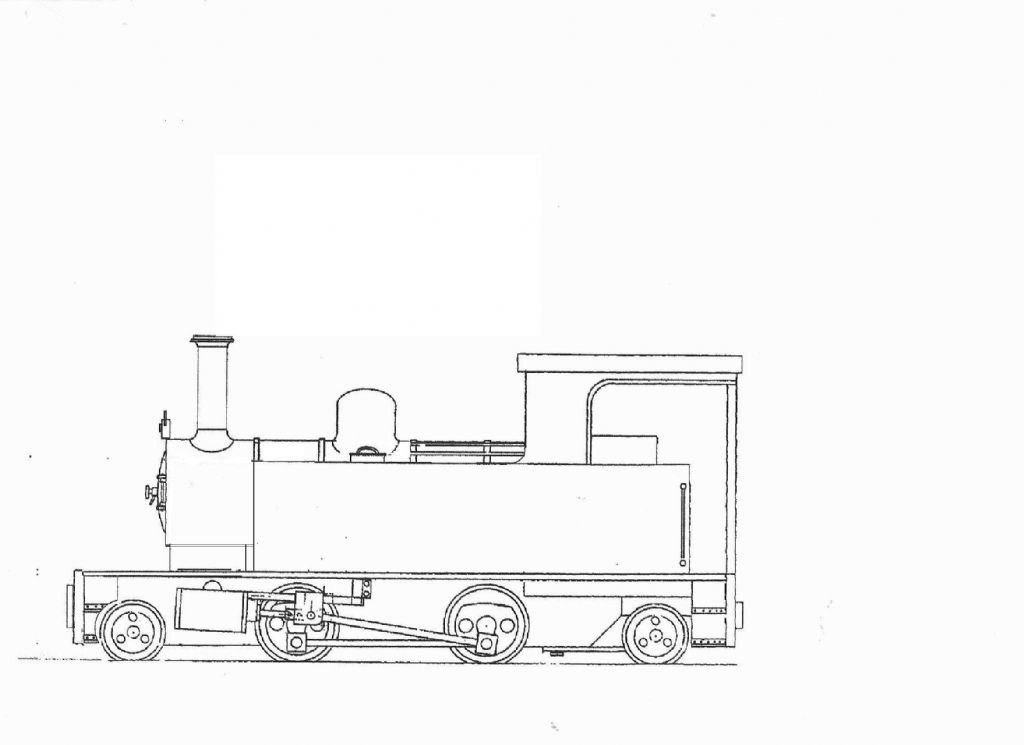JohnS, Thanks for the Tich vote of confidence, but despite the bad rap that Tich seems to receive in some circles I already had Tich on the short-list.
Nigel, Thanks that is inspiring  it is a shame though that you haven't finished it, but I can see the appeal of a sweet pea especially if you want to do some passenger hauling.
it is a shame though that you haven't finished it, but I can see the appeal of a sweet pea especially if you want to do some passenger hauling.
A little background: Having acquired a Unimat Basic lathe (4" swing, 8" between centres) with vertical attachment, I decided that I would like to build a 5" gauge loco. After weighing up the various beginner friendly 5" gauge designs I chose the Don Young Railmotor.
Armed with years of armchair experience (a long time ME reader) and a set of plans from Reeves I confidently set out on this new challenge. A few sessions in the workshop was a humbling experience. I soon realised that a Unimat is not a Myford and that there is a world of difference between reading knowledge and practical experience. So scaling back my ambitions somewhat I successfully built a little Elmer's oscillating engine, a few simple lathe accessories, and made a start on a Stuart 10V.
Turning the 3" diameter Stuart flywheel taught me that the limitations of a small lathe are not just physical capacity. Even within its capacity, operations that may be relatively easy on a larger machine, can be far more difficult or extremely time consuming. It took two evenings of fiddling with the 4 jaw chuck,then the 3 jaw chuck and eventually the faceplate with custom clamps before I managed to find a way of holding the flywheel securely. Once that was done the next unexpected hurdle was that limited cross-slide movement made it impossible to reach the rim of the flywheel with a standard tool. It took another few hours of fiddling before I succeeded with a boring bar held in the reversed toolpost, and then another evening's turning to complete the flywheel taking very shallow cuts. By the time it was finished almost a week had elapsed. Taking this long to make one item may be an adventure the first time, but trying to make a complete loco is sure to become an exercise in frustration.
So once again reality set in and I realised that for any chance of success I would be restricted to a small 3.5" gauge loco such as Tich or Northumbrian. The latter was soon dismissed, although it would seem to be the easier build, the driving wheels diameters are close to the limit for my lathe and by all accounts it would be hard pressed to even haul it's driver once finished.
So I was all set to embark on a Tich when I found Toby. Toby looks to me as if it should be a much easier build, especially with the marine type boiler, but with no accessible 2.5" gauge track, a 2.5" gauge engine is a non-starter.
So my choice comes down to either a Tich or a Toby widened to 3.5". My concern is, whether a 3.5" Toby is going to be a practical proposition bearing in mind that any major redesigning would be beyond me and that I am hoping to only widen the frame stretchers and axles.
Thanks,
Clive
Sub Mandrel.




 [ XP Pro ] No sign of any html files.
[ XP Pro ] No sign of any html files. [ XP Pro ] No sign of any html files.
[ XP Pro ] No sign of any html files.

